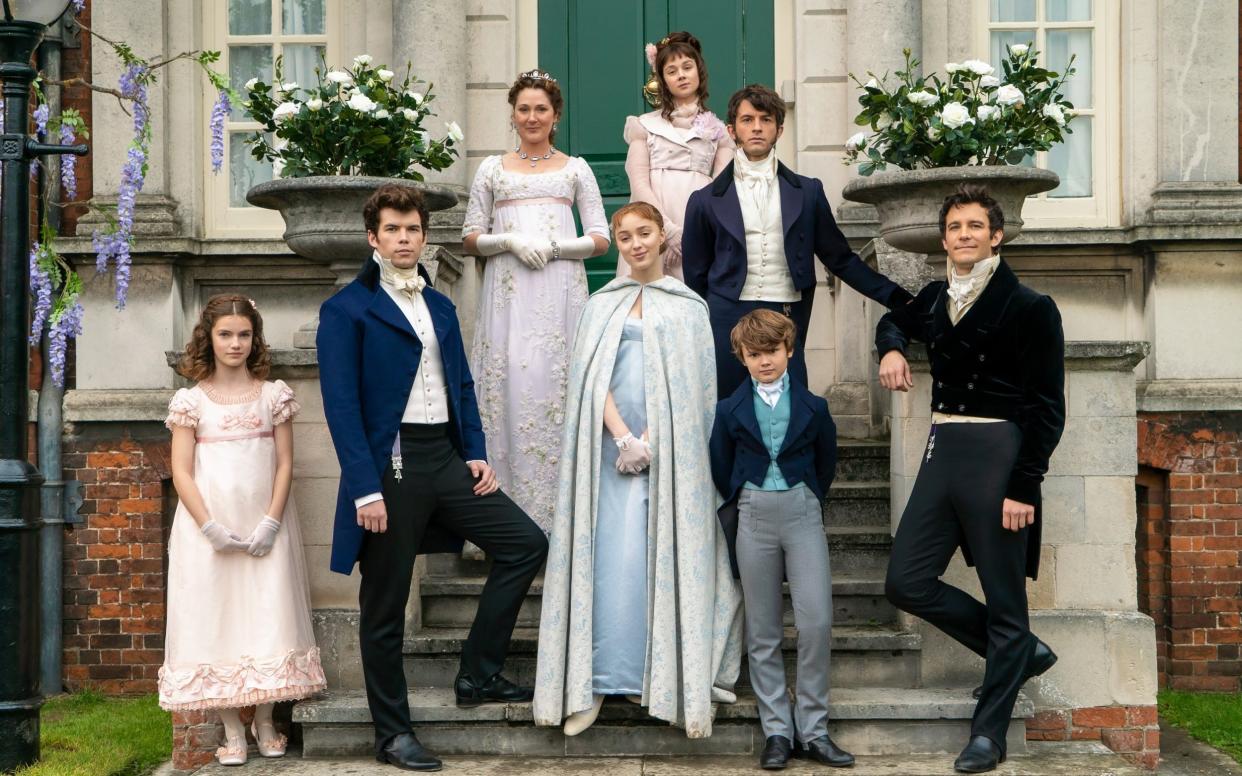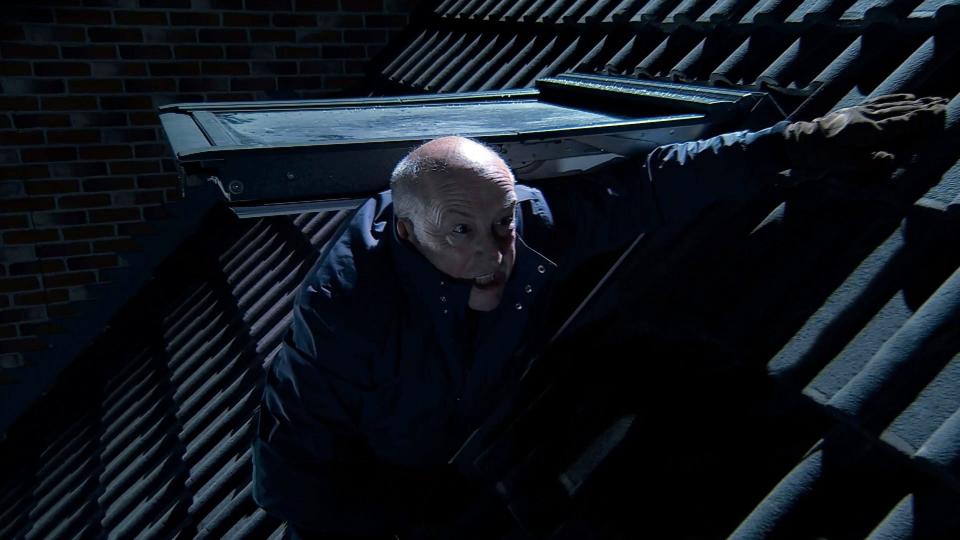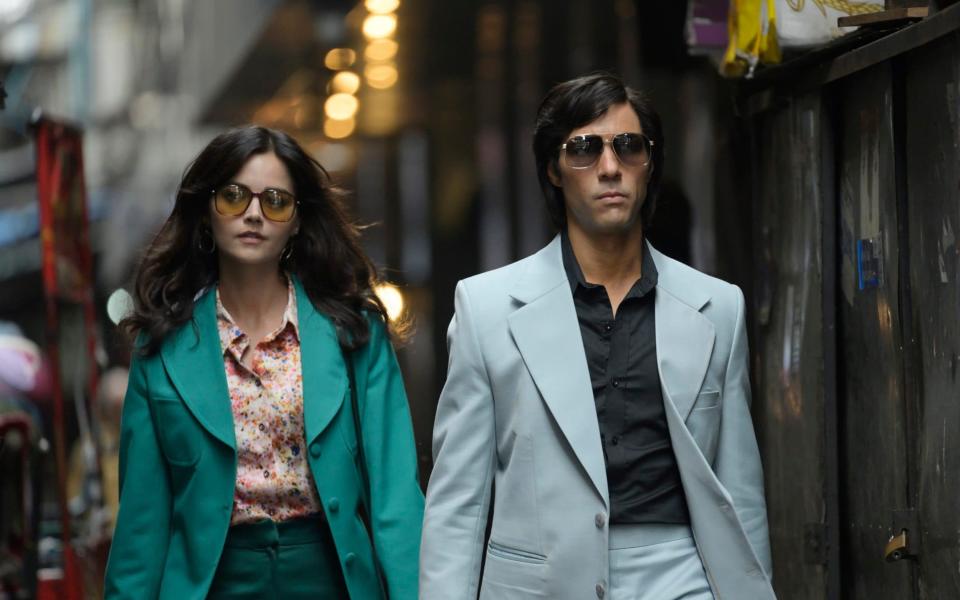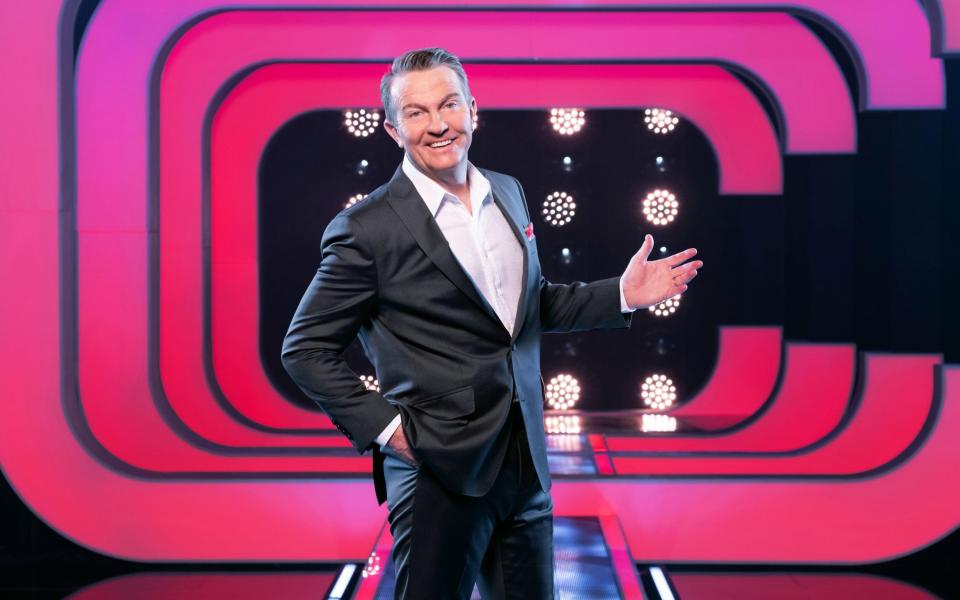No more Zoom audiences, better period drama: TV’s 10 New Year’s resolutions for 2021

It’s that time of year when we look back at what’s gone right (not much in 2020, let’s be honest), cringe at what’s gone wrong (a rather longer list) and vow to do better.
So what should be television’s targets for 2021? Here are 10 things we’d like to see our broadcasters do. Thankfully, none of them involve giving up drinking/smoking/meat/fun…
1. Air decent period dramas on terrestrial again
The best historical dramas in 2020 – Regency romp Bridgerton, royal super-soap The Crown and retro chess hit The Queen’s Gambit – were all on Netflix. This feels deeply wrong. Don’t even get us started on the superb revival of All Creatures Great and Small being tucked away on Channel 5.
Meanwhile, recent attempts by the mainstream terrestrial channels – BBC One’s Black Narcissus, The Luminaries and A Suitable Boy, ITV’s Belgravia and The Singapore Grip – have all flopped like flimsy bonnets in ye olde rain.
Costume drama is traditionally a strength of our TV industry, especially the BBC. Since Downton Abbey and Poldark bowed out, they haven’t been adequately replaced. It’s hardly like we’re short of classic literature to adapt. Our homegrown producers need to dust off their top hats, tighten their corsets and raise their game.

2. Stop our soaps being so bleak
EastEnders has long been renowned for shouty Cockney misery, but it’s been like watching a horror-noir these past few months. The cheery festive tableau which saw psycho-lawyer Gray Atkins wrapping up Tina Carter’s strangled corpse like a Christmas present was a new low. By our count, there’s currently 10 murderers or attempted murderers on the loose in Albert Square. Its continued obsessions with domestic violence and sub-Guy Ritchie gangsters mean it’s unremittingly grim viewing.
Over on Coronation Street, which can normally be relied upon for camp light relief, this year’s big storyline has been evil Geoff’s coercive control of his wife Yasmeen. The plot strand culminated in Geoff’s death and Yasmeen suffering PTSD-induced anxiety attacks. Merry Christmas!
Let’s dial down the histrionics and return to realistic kitchen sink drama, family themes and heartwarming romance. Oh and three extra words for EastEnders bigwigs: bring… back… Dot.
3. Less crime fact, more crime fiction
The trend for true crime drama continued in 2020, with ITV’s Des (which starred David Tennant as Dennis Nilsen) and White House Farm (with Freddie Fox as Jeremy Bamber) alongside the likes of The Salisbury Poisonings and Quiz. It shows no sign of abating in 2021. If anything, it’s accelerating.
The New Year will bring (deep breath) Tahir Rahim as “Bikini Killer” Charles Sobhraj (BBC One’s The Serpent), Keith Allen as Welsh serial killer John Cooper (ITV’s The Pembrokeshire Murders), Stephen Merchant as “Grindr Killer” Stephen Port (BBC One’s Four Lives), Niamh Algar as Rachel Nickell (Channel 4’s My Name Is Lizzie), and Olivia Colman as Susan Edwards (Sky Atlantic’s Landscapers).
Martin Clunes will reprise his acclaimed role as DCI Colin Sutton in Manhunt 2. The first series saw him apprehend Levi Bellfield, while the second will see him hunting notorious serial rapist “The Night Stalker”. ITV are also making a six-part drama about the Yorkshire Ripper.
Some of these series have been excellent. Doubtless some of the new offerings will be, too. But coming so thick and fast, they’re becoming cynically ghoulish. What’s wrong with fictional detectives investigating imaginary cases? Which brings us to…

4. Make more Sherlock, Dracula or Bodyguard
We’ve been badly lacking blockbuster drama on primetime. Writers Steven Moffat and Mark Gatiss brought us Sherlock between 2010 and 2017, which became a global phenomenon and made a megastar out of Benedict Cumberbatch. This was followed a year ago by the pair’s reimagining of Dracula, starring Claes Bang as the titular neck-nibbler. In between came Jed Mercurio’s 2018 political thriller Bodyguard, which gripped the nation and outperformed both in the ratings, becoming the BBC’s biggest drama for a decade.
However, there’s no sign of any more Baker Street sleuthing or Transylvanian bloodsucking. Sure, both series disappeared up their backsides a bit towards the end, but they created genuine buzz with their twisty scripts and cinematic ambition. There have been rumours of a second run for Bodyguard, but, two-and-a-half years later, still nothing.
The BBC should be begging Mercurio, Moffat and Gatiss to write more. The Corporation misses the numbers. Us viewers miss the excitement.
5. No more lockdown TV
Covid-safe productions were a necessity this year but enough is enough. Viewers’ tolerance for Zoom-based programming and those dystopian “virtual audiences” has already worn thin.
Ditto socially distanced chat show guests, which leads to a lamentable lack of chemistry and all manner of awkwardness. Elbow bumping! Waving at each other from two metres away! Oh look, someone else is dialling in from home! God save us and pass the remote.
We’ve now had nine months’ worth of televised video calls and atmosphere-free empty studios. The novelty has well and truly worn off. If programmes can’t be made properly, perhaps don’t make them at all.

6. Make big changes at Channel 4
It used to be the enfant terrible of terrestrial TV, known for edgy drama, cutting-edge comedy, hard-hitting documentaries and groundbreaking formats. Channel 4 still delivers the odd gem: Mae Martin sitcom Feel Good, porn drama Adult Material and Grayson’s Art Club were among its 2020 successes, while Gogglebox remains a weekly treat.
Nowadays, though, its schedules are dominated by generic property, food and dating shows. The Telegraph’s top 10 shows of 2020 didn’t include a single Channel 4 offering. Nor did other broadsheets’ end-of-year lists. Sky and Netflix are bolder. The BBC is more reliable.
A rethink is desperately needed, because Channel 4 hasn’t just lost its USP but quality has nosedived too. This week’s nostalgia trip through its own archives only served as a reminder of how far it has fallen from its Eighties and Nineties heyday. Even the Goggleboxers don’t watch it much.
7. Freshen up or axe tired franchises
Strictly Come Dancing and The Great British Bake Off are still putting bums on seats. MasterChef, I’m A Celebrity and Britain’s Got Talent are just about hanging on in there.
But Love Island, The Voice, The X Factor, Dragon’s Den and The Apprentice are all way past their best and beginning to feel badly dated. Would anyone really miss them if they were dispatched to the TV dumpster in the sky?

8. Sharpen up TV satire
Why has TV satire lost its teeth? In a year of turbulent politics and world-shaking news stories, there was plenty of material but topical laughs have been few and far between. Frankie Boyle's New World Order and the hit-and-miss Mash Report, both on BBC Two, have been the sole sources of news-based bite.
Old warhorse Have I Got News For You still has its moments but is tired, stale and predictable. Mock the Week is even worse. Out of desperation, streaming service BritBox exhumed the corpse of Eighties favourite Spitting Image. It proved about as funny as an airborne respiratory virus.
Even critics’ darling Charlie Brooker delivered a terrible misfire this month with Netflix mockumentary Death to 2020, which had A-list names but D-list gags. British TV comedy is being put to shame by both America and social media. Let’s address this embarrassment.
9. Take a risk on some new presenting talent
Ant and Dec sometimes seem to be permanently grinning away on ITV. Bradley Walsh popped up in every other programme this Christmas – from Doctor Who to The Chase, from Breaking Dad to Blankety Blank. The likes of Richard Osman, Rylan Clark, Davina McCall, Tom Allen, Jimmy Carr, Freddie Flintoff and, worst of all, Gregg Wallace are also becoming worryingly ubiquitous.
Risk-averse producers need to get out of their comfort zones and stop relying on the same old tried-and-tested faces to front their programmes. Discover new names. Take a punt by promoting someone from a niche channel or late-night slot to primetime.
It won’t always work but can pay off handsomely. Joel Dommett has proved a big hit on The Masked Singer – although I’ll wager he wasn’t top of ITV’s hitlist of preferred options. The likes of Jay Blades, Grayson Perry, Alex Scott and Chris Ramsey have also proved surprise successes this year.
10. Don’t dumb down, dumb up
There’s more than enough televisual trash out there, on the hundreds of digital stations and those sprawling streaming-service menu pages.
Terrestrial channels – BBC Two and Channel 4 especially – should set themselves apart by raising their intellectual standards and resisting the urge to move downmarket in pursuit of ratings, which are inevitably in decline anyway.
Don’t underestimate viewers’ intelligence. Don’t patronise or pander. Give us what we deserve, rather than what you think we want. TV should nourish, educate and inform the nation, as well as entertain it.

